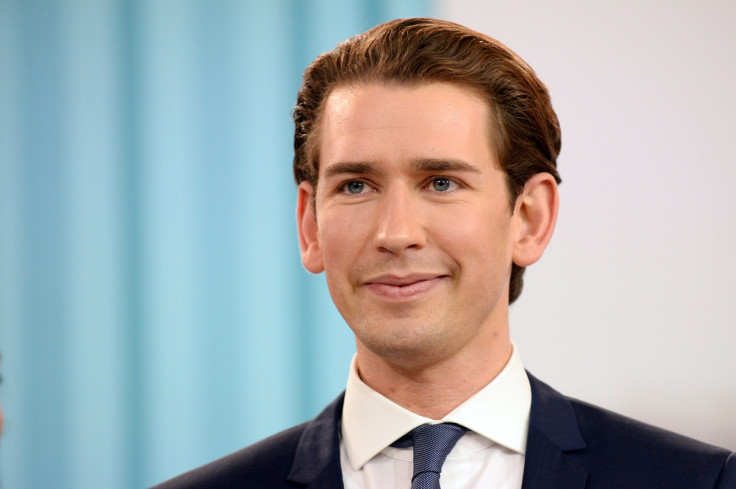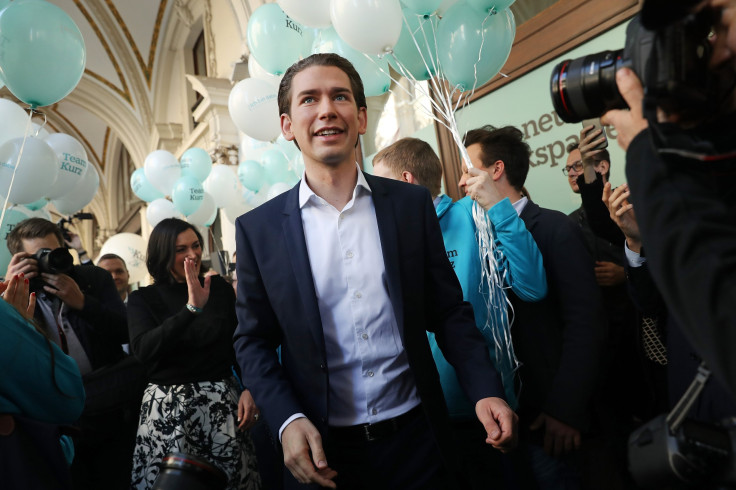Who Is Sebastian Kurz? Austrian Politician To Become Youngest World Leader

Sebastian Kurz, the leader of the Austrian People’s Party (OVP) came out on the top in the country’s legislative elections held Sunday, and is on course to become the youngest leader in the history of Europe.
In fact, Kurz will not only become the youngest Austrian leader, he is also set to become the youngest leader of any country in the world.
In this respect, he will beat North Korea’s Kim Jong Un and France’s Emmanuel Macron, who were handed the reins of their respective nations at the ages of 33 and 39, respectively.
The People's Party was set to win more than 31 percent, and could seek an alliance with the anti-immigration Freedom Party to form the government, the BBC reported.
"I am truly overwhelmed," Kurz said after polls closed, Sydney Morning Herald reported. "We made the impossible possible. Thank you very much for your commitment and this historic success."
Kurz was born in Vienna on Aug. 27, 1986, and studied law at the University of Vienna. He has also completed Austria’s compulsory military service. He is not married but is in a long term relationship with girlfriend Susanne Thier, a worker at Austria’s finance ministry. The two met when Kurz was just 18.
According to Express, his original plan was to create a new party of his own, but he settled for revamping the OVP, a right-leaning political party, instead.
Some of the issues that OVP has championed under the leadership of Kurz are banning immigrants from entering Europe through the west Balkans and across the Mediterranean and banning the face veil, a part of the traditional costume of the Muslims.
Political experts have agreed that the OVP has fared better ever since Kurz took over its youth wing in 2009, making it rank higher in the polls than the far right Freedom Party (FPO), which is currently battling for second place with the Social Democratic Party (SPO).
“Kurz has managed to take over the Freedom Party issues and frame them in a socially acceptable way,” analyst Thomas Hofer said. “He has appealed to those who could have voted for the Freedom Party."
According to Anton Pelinka, a professor of political science at Budapest’s Central European University, Kurz is also the right candidate to teach the rest of world leaders how to deal with right-wing populism.
“We will see that once it becomes clear whether the ‘Kurz formula’ has worked out or not,” Pelinka said, the Guardian reported. “His formula has consisted of stealing talking points from the FPÖ and presenting them in more moderate garments and with better manners. Will it marginalise the Freedom party? In the long run, my guess is no. But for now we should wait and see.”

Following his appointment as the state secretary for Integration in 2011, Kurz left his law studies at the University of Vienna and decided to pursue a full-time career in politics. He went on to top the general election in 2013 and received the maximum direct votes to any candidate before he was sworn in to the Austrian Parliament, the Indian Express reported.
After being elected to Austrian parliament in September 2013, he became the country’s youngest foreign minister in December of the same year. He was elected party leader when the seat was vacated by former Vice Chancellor Reinhold Mitterlehner in May 2017.
Going forward, the conservative MP will have to do a deal with either the social democrats or the far right to win power in coalition talks. He currently has the support of 98.7 per cent of electors from his party.
© Copyright IBTimes 2024. All rights reserved.












